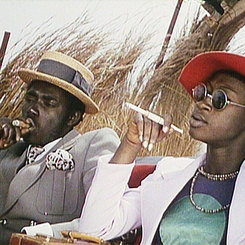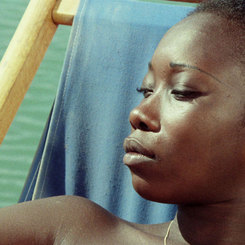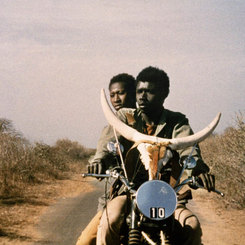Touki bouki (The Hyena's Journey)
Jun 22 - Jun 26, 2016
(Djibril Diop Mambéty, Senegal, 1973, 35mm, 95 min)
In 1973, Senegalese director Djibril Diop Mambéty combined French New Wave filmmaking techniques, the avant-garde traditions of Sergei Eisenstein and nonlinear West African storytelling (griot), to create Touki bouki. A tour de force debut feature about an outlaw couple on the run challenged audiences with its unconventional narrative montage of political and sexual images and kinetic use of color and music. Often compared to Pierrot le fou (1965) and Bonnie and Clyde (1967), the story follows Mory and Anta, a fashionable young Senegalese couple on the run and dreaming of Europe while revealing a sweeping, if discontented look, at Senegalese modernity. Channeling themes of wealth, youth, and delusion, the story revolves around the couple's brash and illegal attempts to get enough cash for boat tickets to Paris. Restored by the World Cinema Project.
“I am interested in marginalized people, because I believe that they do more for the evolution of a community than the conformists. Marginalized people bring a community into contact with a wider world. The characters of Touki Bouki are interesting to me because their dreams are not those of ordinary people. Anta and Mory do not dream of building castles in Africa; they dream of finding some sort of Atlantis overseas. Following their dream permitted me to follow my own dreams, and my way of escaping those dreams was to laugh at them. Mory and Anta's dreams made them feel like foreigners in their own country. So they were marginalized people, in that respect.” – Djibril Diop Mambéty, Transition #78: Go Primitive


